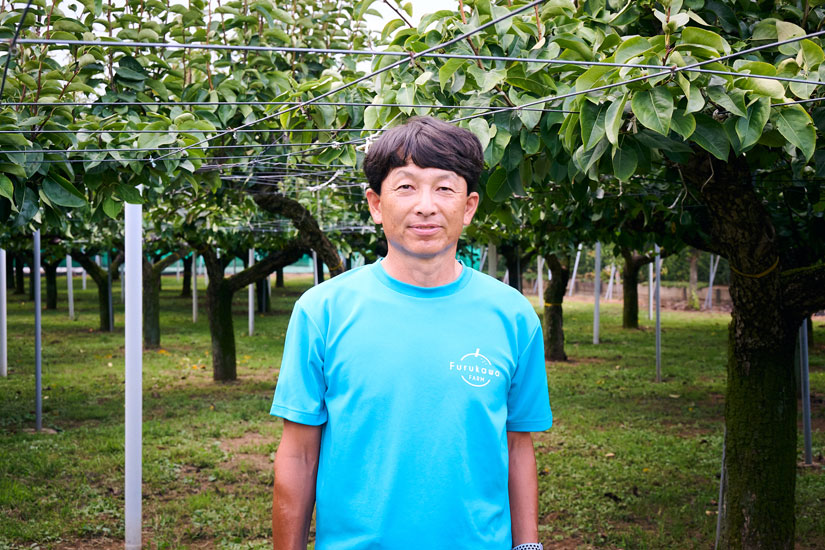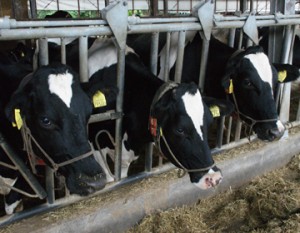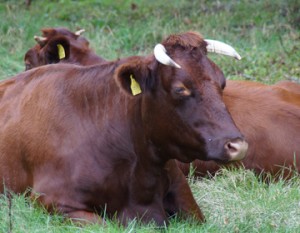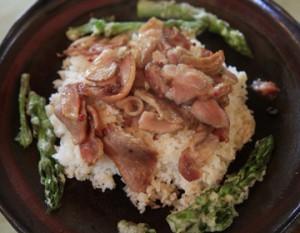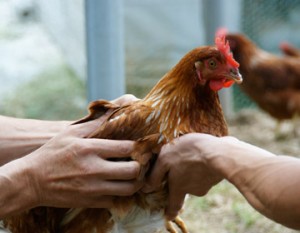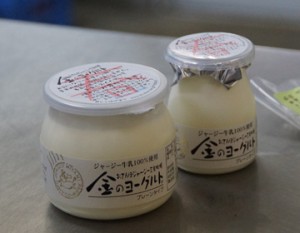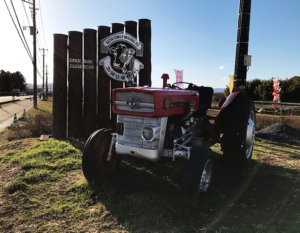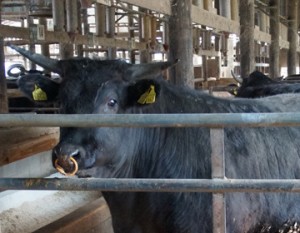Kazuaki Furukawa, the fourth generation owner of Furukawa FARM, has made the decision to switch from chemical fertilizers to organic fertilizers and to stop using herbicides through a cultivation method called “weed cultivation. He has been able to improve the taste of his pears while reducing the burden on the environment. He focused his attention on the rare “Natsuhikari” variety, which won a prize at a contest, and now he and his wife, the fifth generation, are striving to create fans of the farm.
Cultivating soil with an eye on eating quality
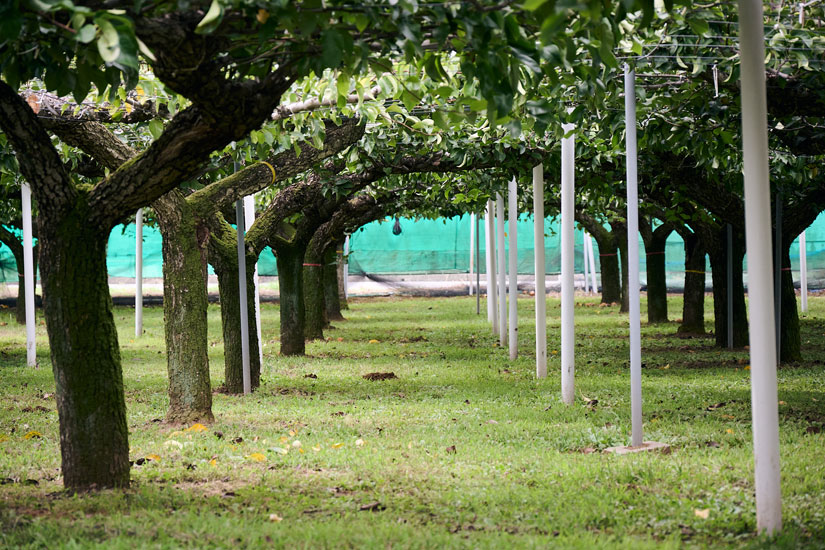
In Chiba Prefecture, which regularly ranks as Japan’s largest producer of pears, the northwestern part of the prefecture is the most active pear-growing area. The history of pear cultivation dates back to the Edo period, when pear cultivation in Chiba Prefecture began in present-day Ichikawa City. The northwestern part of the prefecture still accounts for about half of the prefecture’s pear production, thanks to the Kanto loam soil, which is suitable for pear cultivation, and its proximity to the huge consumption center of Tokyo. Kamagaya City is one of the major pear production areas.
In Kamagaya, many pear orchards have direct sales stands on their premises, and from the beginning of August through early autumn, banners selling pears directly are flown along the main roads and in other places. Pear orchards are an indispensable souvenir of the Bon Festival, and many also sell pears for gift-giving. The sight of pears being sold with tastings by the side of the work area is a typical summer scene.
Furukawa FARM runs a pear orchard in Kamagaya City.
Producing pears that you can decide the price yourself
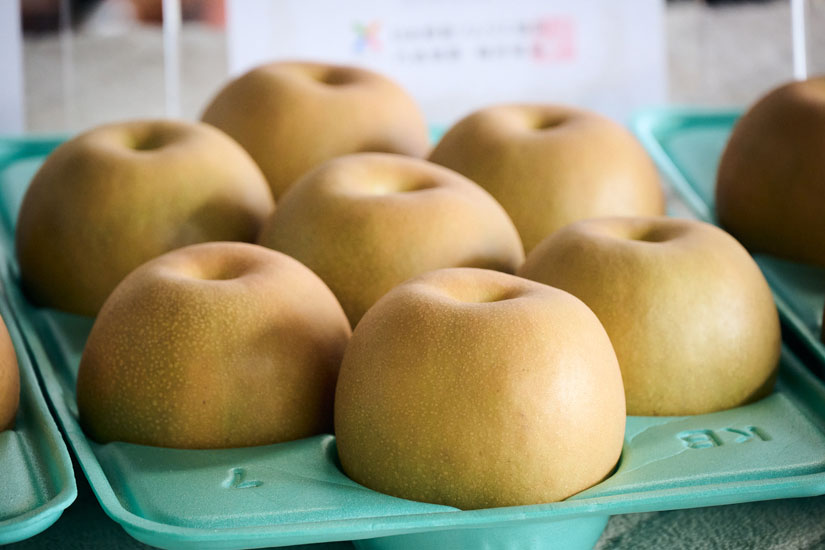
Furukawa FARM began as a vegetable farm in the Meiji era (1868-1912) and started growing pears in the 1950s. Kazuaki Furukawa, who was in his 20s at the time, took over the family business around 1990, but he did not want to “inherit what his parents had done,” so he participated in an agricultural training program in the United States for about two years before starting farming. After returning to Japan, he decided to start working toward the “pear orchard he wanted to create.
At the time, Mr. Furukawa’s biggest problem was “the current situation of growing pears for which he could not decide the price. When I came back to Japan, my family was still growing vegetables, and during the summer when vegetables were not available, I was growing pears to make up for it. So we couldn’t take care of the pears, and we couldn’t produce good pears, so we had no choice but to sell them at the market. I always wanted to change the situation where pears were shipped at a low price every day and increase the ratio of direct sales,” he says.
To improve the quality of his pears and increase his profit margin, Mr. Furukawa shifted the main focus of his cultivation from vegetables to pears, and gradually switched to cultivation methods with an awareness of eating quality.
Changes after switching to organic fertilizers
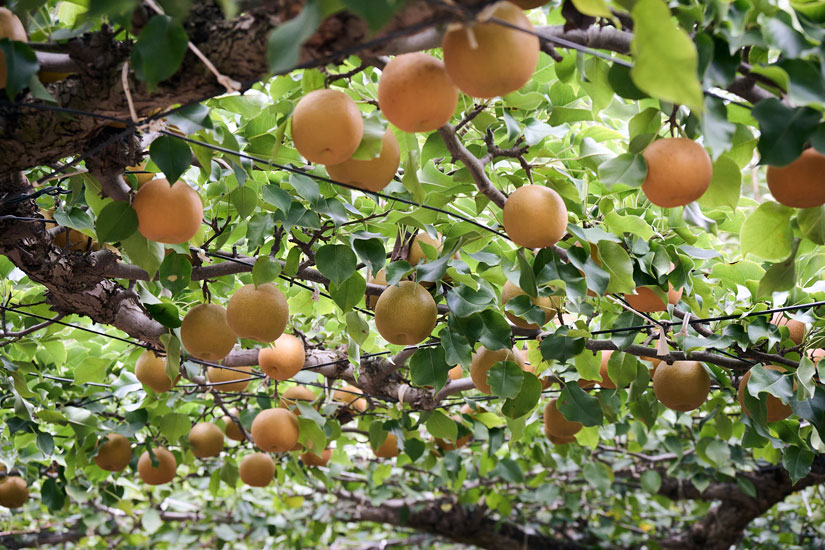
Furukawa FARM has been using 100% organic fertilizers since 2002, and has stopped using chemical fertilizers altogether. Currently, they use chicken manure, cattle manure, fish meal, and rice bran as fertilizers, and they say that the “taste” of their produce has changed dramatically since they switched to organic fertilizers. The new organic fertilizers have greatly changed the taste of the grapes. “Although they grow slower than chemical fertilizers, they produce fruit more slowly, so they store plenty of juice and have a nice crunchy texture,” he says.
Furthermore, “the balance between acidity and sweetness has improved,” he says. Based on his experience, Mr. Furukawa believes that nitrogen, a component of fertilizers, affects the acidity of pears. When we were using chemical fertilizers, the nitrogen content directly entered the pears, and the acidity was too strong. I have the impression that the acidity has become milder. For this reason, he pays special attention to the use of chicken manure, which has a high nitrogen content. Chicken manure has a strong immediate effect, so I never use it close to harvest. Rather, it is important to use it after harvest to prepare the soil environment for the next season,” says Furukawa.
Soil preparation through herbaceous cultivation
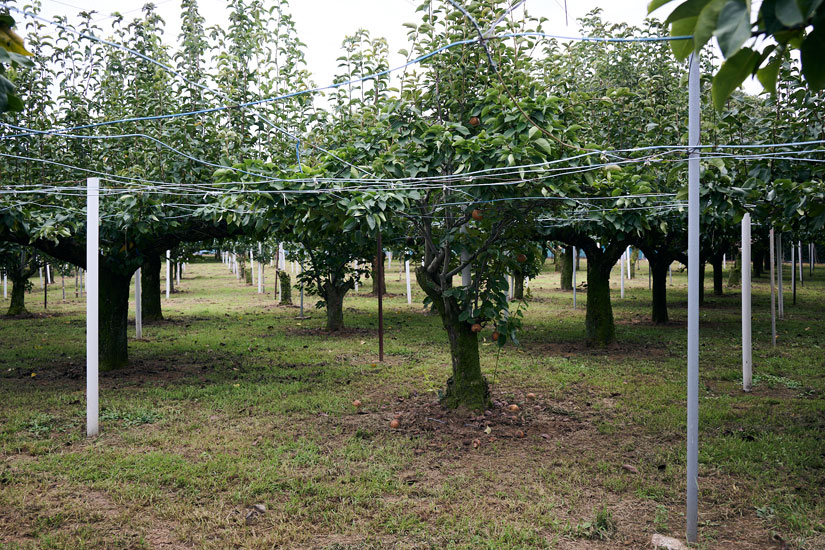
The farm’s soil is cultivated using a method called “herbaceous cultivation,” which makes use of weeds that grow naturally in the garden. Along with this, he also uses no-till cultivation, in which the fields are not tilled. Even after spreading fertilizer, they do not plow the field with a tractor, but leave it as it is and let nature take its course until it permeates the soil through decomposition by microorganisms. The number of earthworms increases and moles come a lot. Recently, beetle larvae have grown up to become adults and appear in the pear orchard.
Grass cultivation is a cultivation method in which a variety of weeds grow and take root in the garden, which is expected to fix nutrients in the soil, prevent the soil from drying out, suppress the rise in surface temperature, and make the soil softer. Healthy soil is the key to healthy pear trees,” says Furukawa while walking on the soft soil in the garden.
Young Farmers Spreading the Word about Highly Evaluated Eating Quality
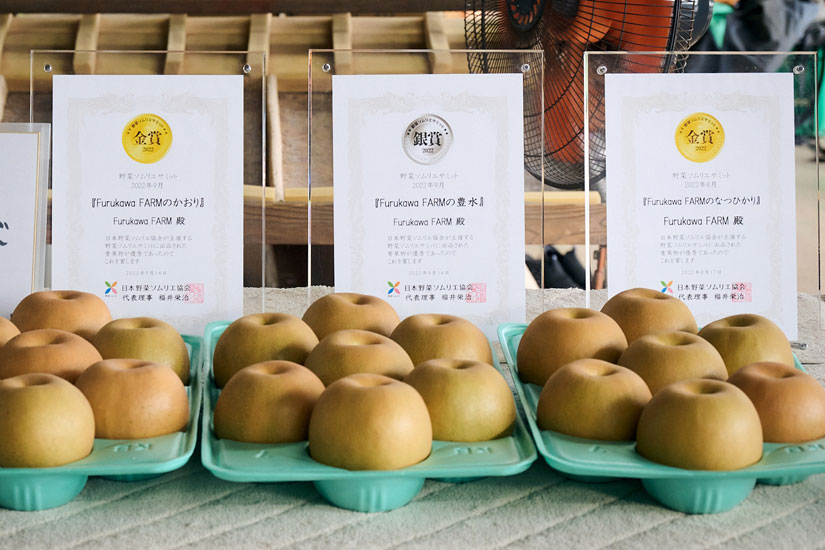
Furukawa FARM currently grows six varieties of pears: Kosui, Natsuhikari, Toyosui, Kaori, Akizuki, and Niitaka. Of these, the rare “Natsuhikari” has been the focus of much attention in recent years. In addition to the Natsuhikari and other varieties winning awards at contests, the activities of the fifth generation couple who joined the farm as Mr. Furukawa’s successors have also contributed to a gradual increase in the number of fans. The sales channel, which used to focus on market shipments, has grown to the point where direct sales account for more than half of the business.
Natsuhikari, a rare variety attracting attention
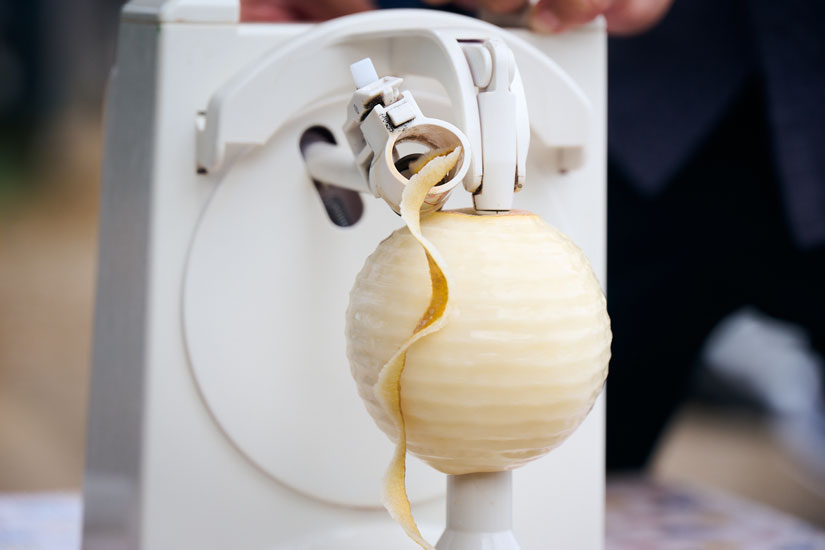
In 2022, Natsuhikari won the Gold Prize in the August fruit and vegetable category of the “Vegetable Sommelier Summit” hosted by the Japan Vegetable Sommelier Association. In the same year, Kaori won the Gold Award and Toyosui won the Silver Award in the September Fruits and Vegetables Category. Natsuhikari is the most popular pear at Furukawa FARM.
Although Natsuhikari was developed in Chiba Prefecture in 1995, its production is low and it is a rarity in Chiba Prefecture, being outnumbered by the standard varieties Kosui and Toyosui. However, it has a high sugar content that is said to exceed that of Kosui, and it is so juicy that the juice drips down when the peel is removed.
Daughter and her husband spread the appeal of pears
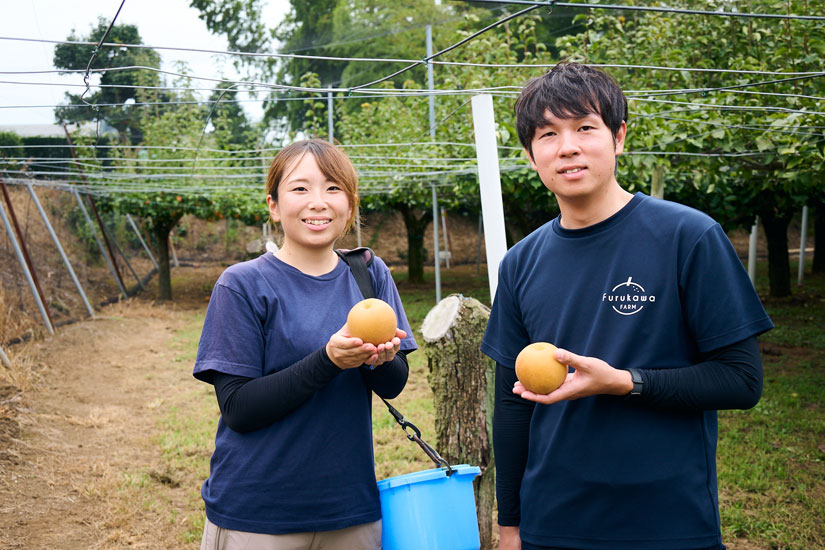
Although the future as a pear farmer presents some challenges, such as the difficulty of cultivation due to global warming, the fact that his daughter Natsuki has succeeded him as the fifth generation farmer is a source of great hope for Mr. Furukawa.
For Natsuki, the farm is a place of fond memories, where she has helped with the work during her summer trips home. As I get older each year, I think it will be tough for my parents to continue to handle this amount of work alone. Our pears are very tasty, so I didn’t want the business to die out after my parents’ generation,” said Natsuki, who decided to start farming with her husband, Kodai.
Natsuki and her husband, Kodai, decided to start farming together. She has opened an online store and uses Instagram to spread the word, saying, “Especially since Natsuhikari is still not well known, we need opportunities to let people know about it. At the direct sales booths, they carefully convey the characteristics of eating quality with tastings. Natsuki laughs, “I often have a lot of fun talking about pears with customers who come to the direct sales stand. Thanks to such efforts, the number of fans has gradually increased, and the direct sales ratio has been successfully raised.
We are gradually getting more and more customers who tell us they are looking forward to receiving Mr. Furukawa’s pears next season,” says Natsuki. I think we must continue to produce pears of even better quality than before,” says Mr. Kodai with enthusiasm. Mr. Furukawa, watching the activities of the next generation at his side, said, “We were just too occupied with what we had been doing until now, but I am very encouraged that we have made solid connections with new customers. I look forward to the future.
The Furukawa family’s pear delicacy has been passed down from generation to generation. We can’t wait to see what the future holds.



